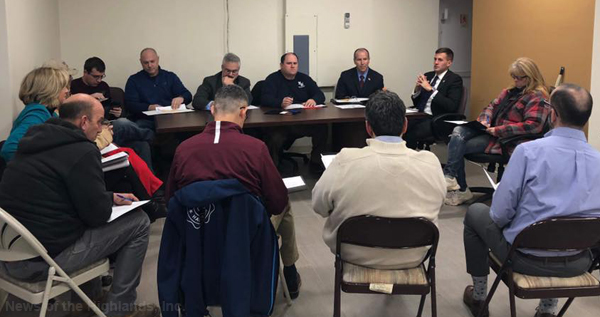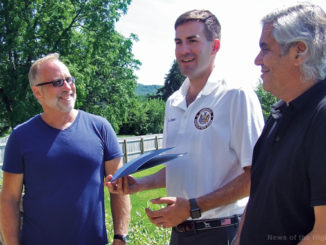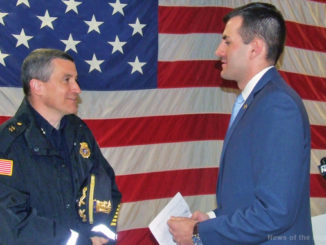
As soon as Colin Schmitt won a seat in the 99th New York State Assembly District, he created a bipartisan transition committee.
“I launched a committee to be a group of top leaders in the community, regardless of professional or political background, to come together so we can discuss the most pressing issues facing our towns, the region, and the state,” said Schmitt.
The committee met on Dec. 14 and Dec. 20.
In selecting the members, Schmitt sat down with people from each of the municipalities he represents in the 99th district. From there he reached out to the network of people whom he previously worked on projects with, or those he dealt with in previous government-related positions. He then sought to add members with various backgrounds. He chose local government leaders (like Cornwall’s Deputy Supervisor Helen Bunt), members of law enforcement, physicians, business owners, economic development leaders, and members of nonprofit organizations.
During the two meetings, the main topics discussed were funding, local law issues, school safety, and economic development.
Development of the bipartisan transition committee will become the basis for the future formation of assembly district advisory councils. Each council will be issue area specific — for example, there will be groups focused on economic development, medicine, law enforcement, and local government, just to name a few.
“You have a lot of elected officials, at all levels and of all parties, who think they know everything about everything,” Schmitt said. “They’ll get up in Albany and try to debate a bill about a subject they’ve never heard about, or a profession they’ve never been involved with or never sought any input on. That’s not going to be the case for my office. When they do put that law enforcement bill up or that healthcare related bill up, I’m actually going to refer to the experts. I’ll be able to say the residents of my district say this is bad because of x, y, z. These are the people being impacted by this legislation. We need to take into consideration their thoughts and opinions.”
The plan is to have these advisory councils meet or conduct conference calls quarterly and then provide updates to Schmitt and his staff.
In the coming weeks, Schmitt will be releasing more information on how citizens can sign up for these advisory councils.



